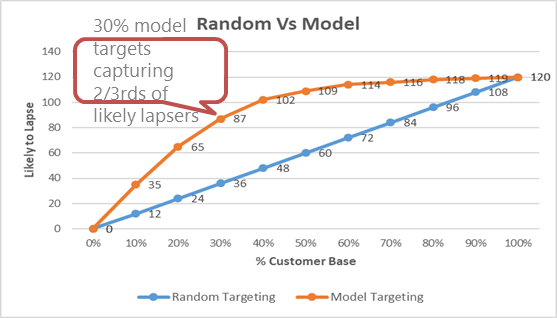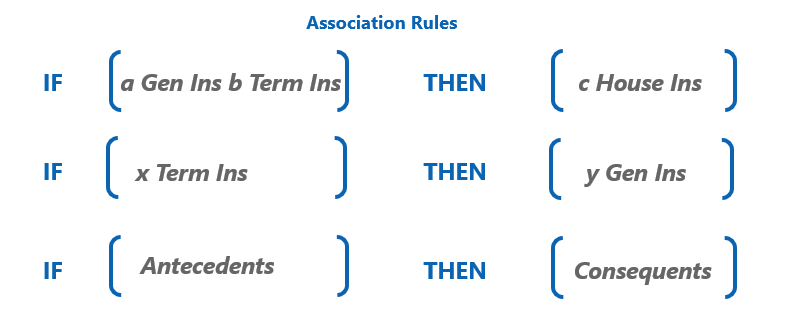How Insurance Industry can benefit from Advanced analytics?
Blog: Indium Software - Big Data
Rate of churn is a key variable for any service company. Because it is not about how many new customers you add, it is about how many of them stay with you. A recent customer retention study found out that, 65% of business comes from existing customers.
Businesses spend tons of money on marketing to acquire new customers and increase customer base. However, businesses can save a lot by just retaining existing customers. Yes, according to customer retention stats, 5% boost in customer retention increases the businesses profit to 25% to 95%
Some of the industries that are affected by churn rate are insurance companies, online streaming services, ecommerce, subscription services (Gyms) etc. In this blog, we are going to consider the example of Insurance companies. This blog will showcase the struggle insurance companies face to retain their customers and how analytics can help address the issue.
Who is a lapsed customer?
A lapsed customer is who has not come back to buy in an expected amount of time. In this case a customer who does not renew his/her insurance policy. This happens due to many reasons. The customer might not be happy with the service, they might get a better service for the same price or they do not like a particular product.
No matter what the reason is, it is your responsibility to bring them back, otherwise, you are leaving money in the table.
Luckily, with advanced analytics, you can target certain customers and create specific marketing campaigns to encourage them to buy from you again.
Analytics Case for Lapsers
How to methodically attack the lapsers problem?
As an Insurance company, you will collect a massive amount of data from your customers. Not just customer data, but also the transaction data with multiple product lines of general insurance, life insurance, health insurance & medical insurance etc.
The problem here is that the data sits in the computer and most businesses are not capitalizing on the benefits it can bring to the business.
Lapsed customer is one of the big problems the insurance industry faces. With the help of advanced analytics, insurance companies can not only solve the lapsers problem but also target the right products to the right customers, thus bringing more revenue.
To demonstrate, let us divide the customer base into 3 segments and Strategize accordingly
- Lapsers – Customers who have moved out of the system. We have to strategize a plan to win back the lapsers
- Likely to Lapse – Customers who are most likely to move. We have to retain them.
- Loyal Customers – Customers who have a low likelihood to move. Cross-sell other products to these customers
Lapsers – Win-back Strategy
The best strategy to convert a lapsed customer into a loyal customer is by reaching out to them and persuade them with similar products. You must figure out what will be the “next best product” to sell to the lapsers.
Fortunately, analytics can help in finding the right products for lapsed customers.
Find the next best product with the help of a collaborative filtering recommendation technique. This technique will help you by filtering out items that a customer like based on reactions by similar customers.

Keep in mind, use a limited set of 3-4 recommended products rather than all products to win back the customer. Suffocating your customers with all your products will not help you achieve your goal.
Likely to Lapse – Retention Strategy
The next step would be to identify the customers who are likely to lapse and make sure they are not leaving you. To identify that,
- Build a lapse model to find the likely lapsers.
- Take the top 30-40% high probability lapsers and try retaining
- Retain using the same product or Sell another product

Loyal Customers – Cross-sell Strategy
Loyal customers are the ones who are most likely to stay with you. These customers like your products and will be ambassadors for your brand. The best strategy for them is to cross-sell your products.
What product to cross-sell to loyal customers?
Use association rules to increase cross-sell conversion. The Association rules method will be apt for uncovering the relationship between variables in large databases. This rule-based machine learning method will help in the cross-selling strategy.
Once you have the data and plan, all you have to do is make sure that cross-selling campaign is run successfully.
Customer who buys ‘a’ GI and ‘b’ TI also buys ‘c’ Insurance

In a Nutshell
This blog explained the use case of Insurance industry alone. However, analytics can be used across multiple industries. In the future, more and more businesses will use predictive analytics to forecast events and gain actionable insights that will help them in making the business better.
By using analytics, you are not only getting a competitive advantage but also save time, resource and money in the long run. After all, data is only a strategic asset when you can put it to work. Analytics will only help in identifying whom to target with what, it is the organization’s responsibility to make sure the best products and services are delivered to their customers.
The post How Insurance Industry can benefit from Advanced analytics? appeared first on Indium Software.
Leave a Comment
You must be logged in to post a comment.








